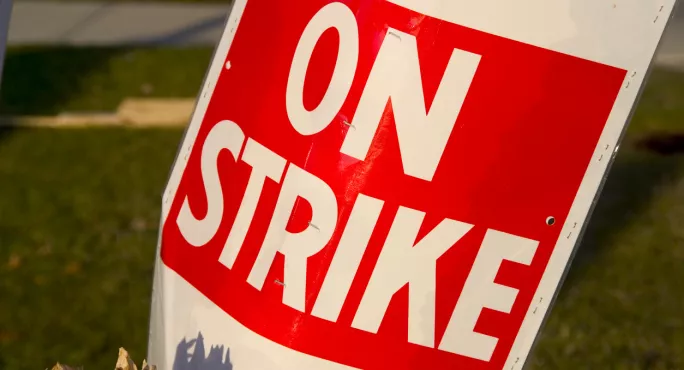SQA strike action remains on after no breakthrough in talks

Strike action is set to begin tomorrow at Scotland’s exam body following no breakthrough in talks, Unite the union has said.
The SQA has received 55,000 standard exam grade appeals this year - almost five times as many as it received in 2019, the last time national external exams were held - and now the Unite union says it is likely these appeals will be “severely disrupted”.
As well as going ahead with the three days of previously announced strikes on 8, 15 and 16 September, Unite says a further six strike days will take place on 22, 23, 26, 29 and 30 September, and 3 October.
- Background: Exam appeals soar as SQA strike action looms
- Related: Ballot on ‘insulting’ teacher pay offer could lead to strikes
- News: Threat of teacher pay strikes across the UK
The union said an overtime ban and ban on accrual of time off in lieu will also be in effect from 8 September to 30 November.
Today - giving evidence to the Scottish Parliament’s Education, Children and Young People Committee - SQA boss Fiona Robertson admitted she was concerned about the disruption to appeals that could be caused by the strikes. But she said that a new pay offer that she hoped would be accepted had been made on Monday night.
Unite said that offer had been rejected on the basis that for the lowest pay grades it represented an uplift of between 5.5 to 7.7 per cent, which “remains a significant real-terms pay cut”.
The union added that for nearly half the workforce it also represented a consolidated pay offer as low as 3.3 per cent.
The union also hit out at the last-minute tabling of the offer before tomorrow’s industrial action, calling it “a cynical publicity stunt”. The trade union said the SQA had been prevented from tabling a fair pay offer at an earlier date by the Scottish government as a result of the various public sector pay disputes.
On Friday, public sector workers - including school catering staff, cleaners and classroom assistants - called off their planned three days of strike action this week.
Unite general secretary Sharon Graham said: “Unite’s SQA members are set to take different forms of industrial action due to a pay offer which still represents a substantial real-terms pay cut for the lowest paid. It is completely unacceptable and we will stand up for our members’ jobs, pay and conditions at the SQA because they deserve better.”
The results of the standard appeals process are scheduled to be issued to schools, colleges and training providers by the end of October 2022.
The SQA confirmed the results of priority appeals - if a college or university place, or a training or employment offer, depends on a grade - to UCAS yesterday (6 September).
Alison MacLean, Unite industrial officer, said: “Industrial action will go ahead at the SQA and it will continue until a fair pay offer is on the table. This will severely disrupt up to 55,000 student appeals.
“Talks through Acas have barely moved us forward one inch. The reason for this is because the SQA have in effect been prevented from tabling an improved offer by the Scottish government due to the various public sector pay disputes.
“The last-minute offer is nothing but a cynical publicity stunt designed to blame the workers who have no option but to take industrial action due to the procrastination displayed by both the SQA and Scottish government.”
An SQA spokesperson said: “Given the significantly improved pay offer that was on the table, we are disappointed that the proposal has been rejected by the trade unions.
“We are acutely aware of the impact the cost of living is having and we have worked hard to secure agreement from the Scottish Government to make the best offer that we believe we can. The revised offer represents an overall average value of 7 per cent across the organisation, including pay progression, with increases up to 9.4 per cent for some. Those at the lowest grades will benefit the most.
“We remain committed to ongoing dialogue with our trade unions to resolve this dispute. Industrial action is not in the interests of learners.”
You need a Tes subscription to read this article
Subscribe now to read this article and get other subscriber-only content:
- Unlimited access to all Tes magazine content
- Exclusive subscriber-only stories
- Award-winning email newsletters
Already a subscriber? Log in
You need a subscription to read this article
Subscribe now to read this article and get other subscriber-only content, including:
- Unlimited access to all Tes magazine content
- Exclusive subscriber-only stories
- Award-winning email newsletters
topics in this article



